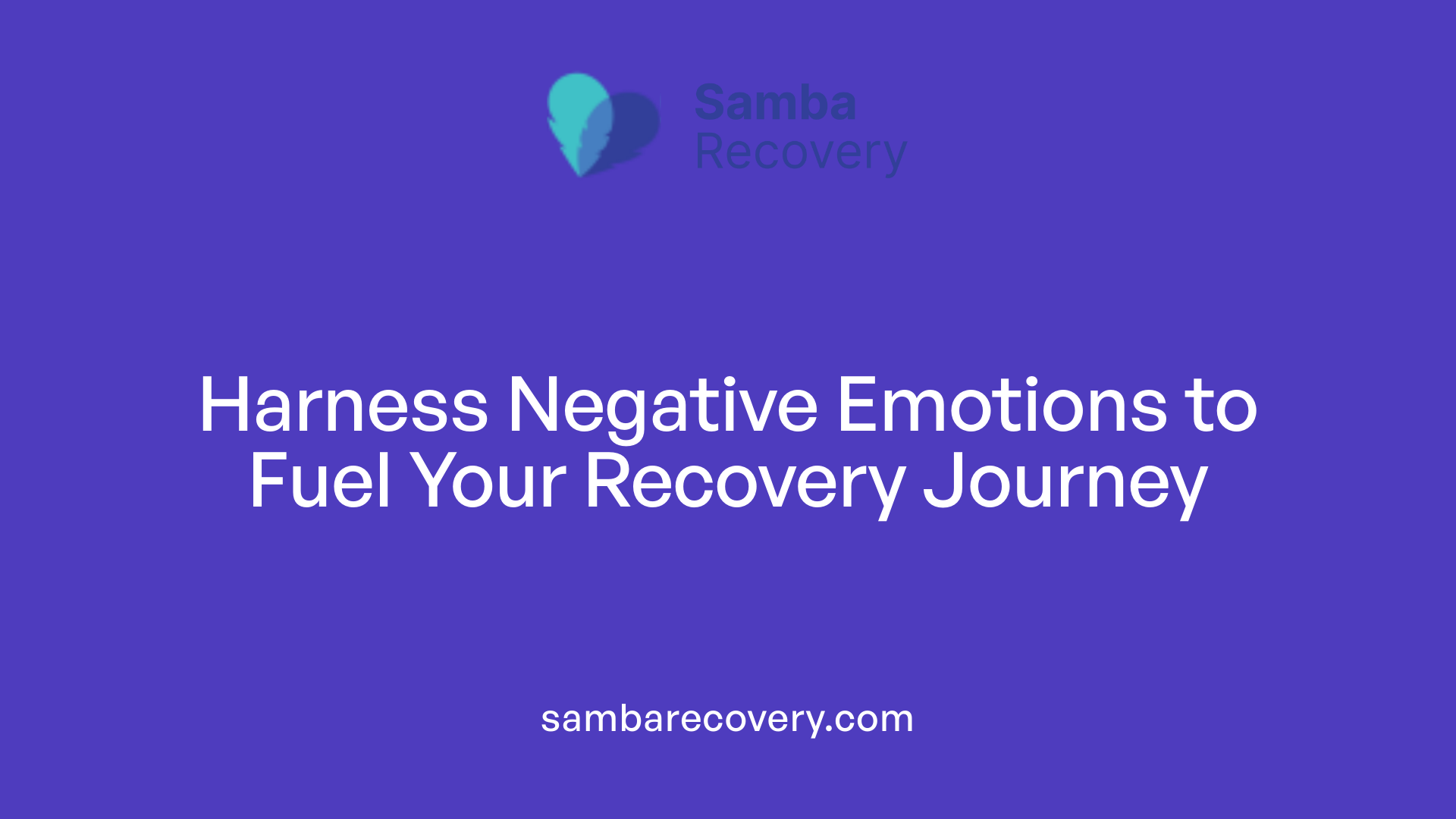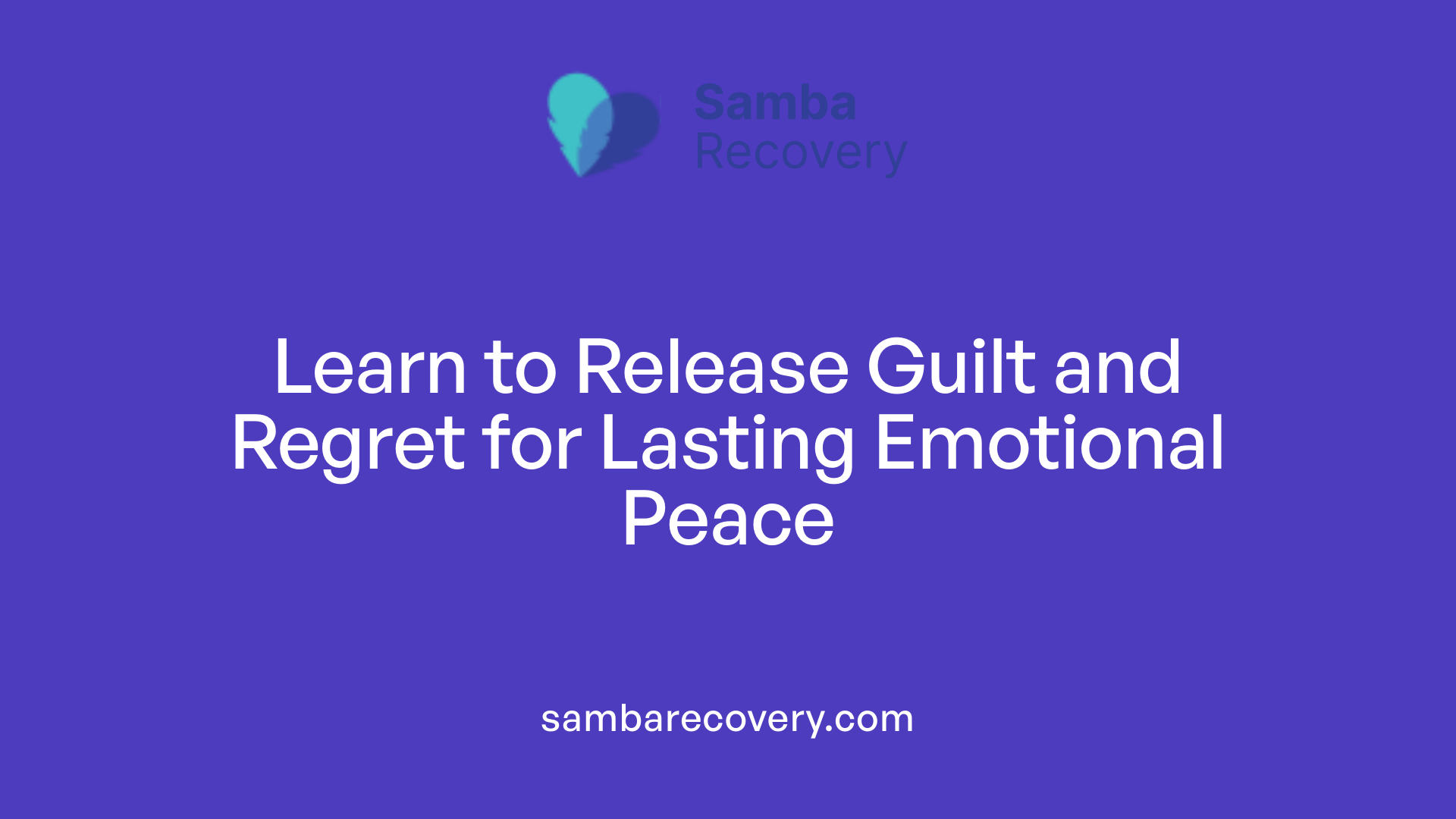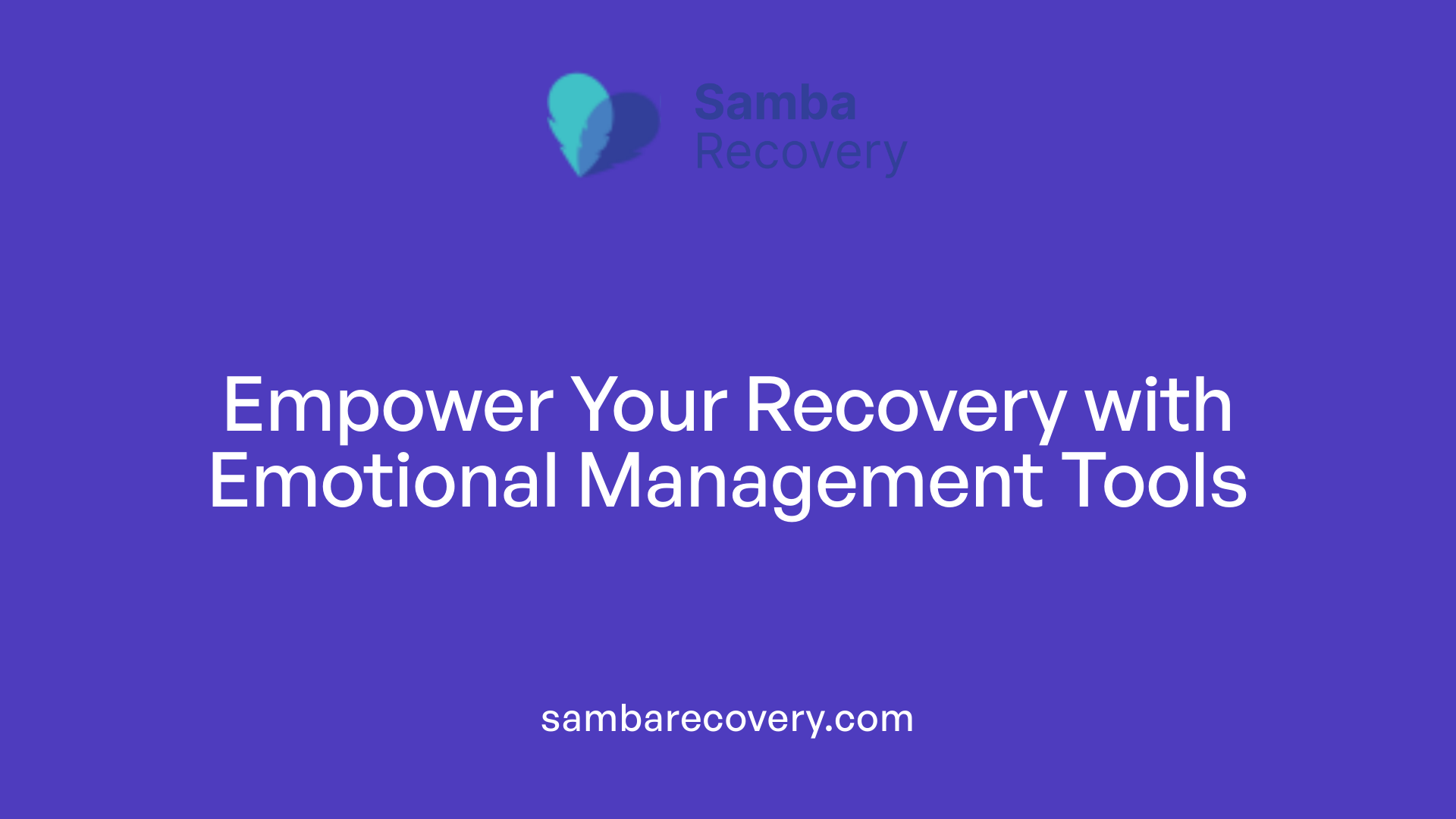Understanding and Managing Guilt and Regret in Recovery
Recovery from addiction and mental health struggles is a multifaceted process that involves addressing not only physical health but also deep-seated emotional responses. Among these, guilt and regret are common feelings that can either motivate positive change or hinder progress if left unaddressed. This article explores effective strategies and tools for managing these complex emotions, emphasizing the importance of self-forgiveness, professional support, and healthy self-perception in supporting enduring recovery.
The Emotional Landscape of Recovery: Guilt and Shame
How can counseling help in managing guilt and shame during recovery?
Counseling plays a vital role in navigating the complex emotions of guilt and shame that often arise during recovery from addiction. Techniques such as acceptance and forgiveness are central to therapeutic approaches. Counselors help individuals understand that making mistakes is a normal part of life and recovery, encouraging them to accept these errors without relentless self-criticism.
A common step in therapy involves assisting clients in making amends when possible. This process can be a powerful way to reduce feelings of guilt, as it allows individuals to address their past actions directly. Through methods like cognitive-behavioral therapy (CBT), acceptance and commitment therapy (ACT), and trauma-informed approaches, therapy promotes a healthier self-perception, emphasizing self-compassion and a focus on personal growth.
By fostering an environment of trust and understanding, counseling helps individuals reframe negative self-beliefs and cultivate resilience. This supportive setting makes it easier to confront feelings of shame, teach self-forgiveness, and develop strategies to prevent relapse. Ultimately, therapy guides clients toward a more compassionate relationship with themselves, vital for sustaining long-term recovery.
Transforming Negative Emotions into Supportive Fuel

How can feelings of guilt be turned into motivation for positive change?
Guilt, when managed properly, can serve as a powerful catalyst for growth rather than a barrier. Recognizing that guilt stems from specific actions allows individuals to reflect on their behaviors and understand the impact on others. This awareness can motivate meaningful changes, such as making amends or adopting healthier habits.
Transforming guilt into motivation involves focusing on constructive responses. For example, volunteering, setting new personal goals, or engaging in activities that build self-worth can refocus energy towards positive outcomes. It’s also beneficial to practice self-forgiveness and acknowledge that everyone makes mistakes; this reduces shame and encourages resilience.
What role do self-compassion, acceptance, and a redefined self-view play?
Self-compassion and acceptance are central to healing emotional wounds from guilt and shame. By practicing kindness towards oneself, individuals can break free from destructive self-criticism and foster a nurturing mindset. Accepting past mistakes as part of a normal human experience diminishes the intensity of shame and allows for forgiveness.
Reframing self-perception from a view of being inherently flawed to one of ongoing growth encourages resilience. This shift helps individuals see themselves as capable of positive change, which is essential for sustaining recovery. Emphasizing current strengths and efforts promotes a hopeful outlook and fosters a healthy self-image.
How does community and support group involvement act as a buffer against shame?
Participation in community and support groups provides a sense of belonging and understanding that is vital for overcoming shame. Sharing experiences with others facing similar struggles creates a safe space where individuals can express feelings without judgment.
Support groups also offer validation and encouragement, reducing feelings of isolation that shame can induce. Hearing stories of recovery inspires hope and demonstrates that change is achievable. Engaging with supportive peers and professionals reinforces the message that no one is alone, which significantly bolsters emotional resilience.
Strategies for overcoming guilt and shame supporting recovery
| Strategy | Description | Benefits |
|---|---|---|
| Recognize destructive feelings | Understand that guilt and shame can hinder progress | Promotes awareness and control over emotions |
| Seek forgiveness and self-forgiveness | Work on forgiving oneself and others | Eases emotional burden and fosters healing |
| Build a support network | Engage in therapy and support groups | Provides encouragement and shared understanding |
| Focus on the present | Practice mindfulness and living in the now | Reduces rumination and promotes positive growth |
| Redefine self-perception | Shift towards a compassionate, growth-oriented view | Enhances self-esteem and resilience |
| Connect with professional resources | Use helplines and counseling services | Provides expert guidance and emotional support |
Resources and further support
Resources like SAMHSA’s National Helpline offer free, confidential assistance, connecting individuals with local treatment options, support groups, and community services. Such support is crucial in managing the emotional challenges of recovery, ensuring that feelings of guilt and shame do not obstruct the journey toward a healthier future.
Letting Go and Forgiving Oneself

How can individuals let go of guilt and regret and forgive themselves?
Recovering from substance use or past mistakes involves a vital step: self-forgiveness. This process is essential to move past feelings of guilt and shame that can hinder progress.
Practicing self-awareness helps individuals recognize their emotions without judgment, creating space for compassion to flourish. Accepting that making mistakes is part of being human allows for a more forgiving attitude toward oneself.
Tools like mindfulness and meditation can help anchor a person in the present moment, reducing rumination on past regrets. Journaling provides an outlet to explore and understand complex feelings, while visualization exercises can foster a sense of emotional release and inner peace.
Reaching out to trusted friends, family, or mental health professionals offers guidance, perspective, and support during emotional healing. These connections reinforce that forgiveness is a process that takes time and patience.
It’s important to approach self-forgiveness with kindness and patience. Changing how one perceives oneself — shifting from self-criticism to self-acceptance — encourages growth and resilience.
Ultimately, forgiving oneself involves embracing imperfections, learning from past behaviors, and understanding that growth is ongoing. This approach promotes healing, emotional stability, and a healthier outlook in recovery.
The Role of Professional Support and Therapeutic Approaches
How can counseling help in managing guilt and shame during recovery?
Counseling provides essential support in addressing the complex emotions of guilt and shame experienced during addiction recovery. Therapists utilize various evidence-based techniques designed to promote acceptance, understanding, and forgiveness. This supportive environment encourages individuals to confront their feelings without judgment, fostering self-compassion and emotional healing.
A core aspect of therapy involves helping clients differentiate between guilt and shame, emphasizing healthy forms of guilt that motivate positive change, and addressing destructive shame that damages self-esteem. Techniques such as Cognitive Behavioural Therapy (CBT), Dialectical Behaviour Therapy (DBT), and Acceptance and Commitment Therapy (ACT) help clients reframe negative thoughts, develop coping skills, and build resilience.
Therapeutic interventions also focus on shifting self-attitudes about blame, replacing punitive self-criticism with compassionate self-understanding. Therapists guide clients in recognizing their worth, processing past actions responsibly, and forgiving themselves. This process not only alleviates emotional burdens but also empowers individuals to move forward in their recovery.
Evidence-based treatments like CBT, DBT, and acceptance and commitment therapy
These therapies have proven effective for managing feelings of guilt and shame. CBT helps clients identify and challenge distorted thinking patterns, fostering healthier perspectives. DBT emphasizes emotional regulation and mindfulness skills, while ACT encourages acceptance of difficult feelings and commitment to personal values.
The benefits of group and individual therapy in navigating guilt and shame
Both settings offer unique advantages. Individual therapy allows for personalized exploration of emotions, goal setting, and tailored strategies. Group therapy provides a sense of community, shared experiences, and peer support, which can reduce feelings of isolation.
In group settings, individuals learn from others’ stories, gain validation, and practice social skills. Combining both approaches can create a comprehensive support system conducive to emotional healing.
How professionals can help shift self-attitudes about blame
Professionals play a crucial role in transforming negative self-perceptions related to blame. Through narrative therapy and other relational techniques, therapists assist clients in reframing their stories about past actions. They encourage a shift from punitive self-blame, which can hinder progress, to scaffolding self-change, fostering hope and motivation.
By creating a safe space for honest dialogue, therapists enable clients to process guilt constructively and develop a more compassionate outlook. This shift is vital for reducing shame’s hold and promoting ongoing recovery.
Additional strategies and supportive resources
Seeking professional help through therapy, support groups, and psychoeducation can significantly aid in managing emotional distress. Combining therapy with self-care practices such as mindfulness, journaling, and building a support network enhances overall well-being. Recognizing that healing is a gradual process and engaging in continuous support increases the likelihood of sustained recovery.
Practical Tools and Techniques for Emotional Management

Managing guilt and shame effectively is crucial for supporting long-term recovery from addiction. Several practical strategies can help individuals address these complex emotions.
Mindfulness and Meditation:
Practicing mindfulness and meditation helps individuals stay grounded in the present moment, making it easier to reduce rumination about past mistakes. These techniques encourage acceptance of what cannot be changed and foster a sense of inner calm, which is essential during challenging emotional periods.
Journaling and Cognitive Techniques:
Writing about feelings and thoughts can clarify emotional experiences and identify patterns of negative thinking. Cognitive-behavioral techniques, like challenging faulty thoughts, help reframe perceptions. For example, replacing "I am unworthy" with "I am working towards positive change" promotes healthier self-esteem.
Addressing Trauma and Emotional Scars:
Deep-seated trauma often underpins feelings of shame. Therapy modalities such as trauma-informed care, cognitive-behavioral therapy (CBT), or eye movement desensitization and reprocessing (EMDR) can uncover and process these underlying issues. Healing from trauma reduces the risk of shame becoming toxic and supports emotional resilience.
What strategies can aid in overcoming guilt and shame to support recovery?
To overcome guilt and shame and support recovery, it is essential to recognize that these emotions are counterproductive and can hinder progress. Individuals should work on accepting their past actions, seeking forgiveness, and forgiving themselves to promote healing. Surrounding oneself with supportive people and engaging in open conversations about recovery can provide encouragement and reduce feelings of isolation. Redefining self-perception and focusing on living in the present help shift negative emotions towards positive growth. Lastly, reaching out to resources like the SAMHSA National Helpline can connect individuals with professional support and community services to aid in managing these feelings effectively.
The Impact of Unresolved Guilt and Shame on Long-term Recovery
How unaddressed guilt and shame can be relapse triggers
Unresolved feelings of guilt and shame can deeply affect someone in recovery. When these emotions are not properly managed, they can cause individuals to feel overwhelmed and unworthy. Shame, in particular, can erode a person’s self-esteem, leading them to believe they are inherently flawed. This negative self-view can push individuals back toward substance use as a way to escape these painful feelings. Guilt, if acknowledged and processed healthily, can motivate actions like making amends. However, if left unchecked, it might also foster resentment or self-punishment, which increases relapse risk.
The importance of ongoing emotional work in sustaining abstinence
Maintaining sobriety goes beyond just avoiding substances; it requires continuous emotional resilience. Regularly working through feelings of guilt and shame is vital. Therapeutic interventions such as cognitive-behavioral therapy (CBT), support groups, and self-reflection practices are essential tools. These help individuals understand their emotions, accept past mistakes, and learn self-forgiveness. Building healthy coping mechanisms and developing a compassionate inner dialogue play a significant role in preventing emotional setbacks from triggering relapse.
Building resilience and a positive self-image over time
Recovery is a journey of rebuilding self-worth. Developing resilience involves focusing on personal growth, strengths, and positive changes. Over time, individuals can redefine their self-perception by setting achievable goals, celebrating small victories, and surrounding themselves with supportive people. Practicing self-compassion and engaging in activities that foster pride and purpose help solidify a positive self-image. This ongoing emotional work empowers individuals to face challenges confidently, strengthening their commitment to long-term recovery.
Special Considerations During Challenging Times and Seasons
Managing family interactions during holidays and gatherings
Holidays and family gatherings can be both joyful and stressful, especially during recovery. Planning ahead is essential. Setting clear boundaries and preparing responses to potential triggers can help maintain emotional stability. Expressing your needs kindly but firmly can prevent overwhelming situations.
It’s also helpful to communicate your recovery journey honestly with trusted family members to foster understanding and support. Enlisting family or close friends for support can create a safety net during emotionally charged moments.
Handling social pressures and triggers during festive seasons
Festive seasons often come with social pressures that challenge your commitment to sobriety. These include alcohol-centered celebrations, peer pressure, and reminders of past behaviors.
Strategies include practicing refusal skills, avoiding high-risk environments, and having a list of healthy activities or people to connect with instead. Remember, it’s okay to decline invitations that don’t align with your recovery goals.
Listening to your body and mind is crucial. Recognize signs of stress or temptation early and implement calming techniques like deep breathing, mindfulness, or stepping away momentarily.
Strategies for staying committed to recovery despite emotional upheaval
Emotional upheavals, like feelings of guilt, shame, or loneliness, are common during stressful times. To stay committed, focus on self-care practices, such as regular exercise, adequate sleep, and healthy eating.
Building a support network—whether through support groups, therapy, or trusted friends—can provide encouragement and accountability. Engage in activities that remind you of your worth and purpose.
Finally, practice patience and self-compassion. Addressing emotions like guilt and shame in a healthy way involves acknowledging them, seeking professional help if needed, and reframing negative thoughts into positive actions.
Managing these aspects during difficult seasons can reinforce your recovery and foster resilience, helping you navigate challenging times with confidence and grace.
Fostering Compassion and Self-Worth in Recovery
Addressing guilt and regret is an essential component of successful recovery, requiring both emotional awareness and proactive self-care. By understanding the nature of these feelings, engaging in self-forgiveness practices, seeking professional support, and building a supportive community, individuals can transform these challenging emotions into catalysts for growth. Recovery is not only about abstaining from substances or symptoms but also about cultivating inner compassion, resilience, and a positive sense of self that sustains long-term well-being.
References
- National Helpline for Mental Health, Drug, Alcohol Issues
- Overcoming Shame and Guilt in Recovery | Ashley Treatment
- 10 Tips to Overcome Shame and Guilt in Addiction Recovery
- Managing shame and guilt in addiction: A pathway to …
- How to Cope and Overcome Guilt and Shame During Recovery
- Recovery From Addiction And Emotions: Guilt, Shame And …
- Navigating Guilt and Shame in the Recovery Journey
- In Addiction and Recovery, Guilt Heals While Shame Poisons
- Coping with Guilt in Recovery






